Your report quotes IDS as uttering seriously contradictory ‘facts’. One of those seriously erroneous ‘facts’ is his evidentially incompatible utterance on those on benefits and the assertion about ‘bringing them in’. Where is he going to bring them into? Into the remaining undergrowths and bushes in Chingford? There is no more validity in IDS’s rendering of the untruth that has been so irresponsibly ‘credited’ to Norman Tebbit for so long. What IDS has said and what you have broadly represented is an old slogan made only notable because of the commencement of programme of State-operated Social Breakdown that it is being used to justify. So much for the ‘humanisation of a Rightwing Tory’ who was allowed to parrot for years the alleged lament that there had occurred a Broken society syndrome in Britain. Chanting cheap words against involuntarily impoverished [Oops! ‘The poor’] is not new in Britain. What is new is that a new regime of social exclusion is being foisted on the people by a Collusion of self-seeking careerists now installed as the Government of the United Kingdom. The mass defamation of the poor as an art form must be discarded and the truth about the overstated benefit culture given at least the occasional space and airing.
1. Why not publish the full facts about what previous Governments said about the alleged benefit culture, how much they had paid to consultants and private profiteers in the name of dealing with the benefit dependent people and so on?
2. How many of the benefit claimants were failed in their schooling. How many of those claimants turned out to be so as a result of the failures of the social services and other ‘authority’ agencies?
3. How many people end up without jobs because of lack of democratic representation by their ‘elected’ ‘councillors’ and MPs and so on?
1455 Hrs
Thursday
11 November 2010
Iain Duncan Smith unveils new benefit sanctions in welfare 'contract'
White paper sets out most severe welfare penalties ever imposed by a British government
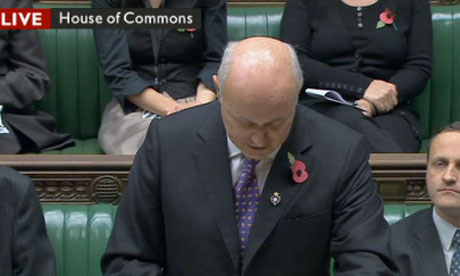
Ian Duncan Smith, the work and pensions secretary, today unveiled a draconian claimant "contract", setting out the scale of welfare penalties to be imposed on people who are out of work.
Duncan Smith, who said earlier today that it is a "sin" that people fail to take up work, published a white paper expected to outline the most severe welfare sanctions ever imposed by a British government, which he said would create a system "fit for the 21st century, where work always pays".
The new measures will see the unemployed losing benefits for up to three years if they refuse community work or the offer of a job.
Those without jobs will lose benefits for three months if they fail to take up one of the options for the first time, six months if they refuse an offer twice, and three years if they refuse an offer three times.
Out-of-work parents of young children will be penalised if they fail to keep in touch with their local jobcentre.
Duncan Smith told MPs in a brief statement to the Commons this afternoon that the contract was a "fair deal for taxpayers and a fair deal for those who need our help".
He promised a "comprehensive system of support" to help people back into employment, and a regime of sanctions for those who refuse to "play by the rules".
He said that his welfare reforms would lift more than 800,000 people out of poverty under a scheme that ensured that people would be "consistently and transparently better off" for each hour they worked and every pound they earned.
"Essentially this is our contract," the former Tory leader told MPs. "We will make work pay and support you through the work programme to find a job, but in return if we do that we expect co-operation from those who are seeking work. That is why we are developing a regime of sanctions for those who refuse to play by the rules, as well as targeting work activity for those who need to get used to the habits of work. That will be a selective process very much targeted at those who need to do it. Not everybody."
The move to a universal credit would create a simpler benefit system and also make sure work always paid more than benefit, he said.
By reducing the complexity of the system, the opportunities for fraud and error, which currently cost the taxpayer £5bn a year, would also be reduced, Duncan Smith added.
He told MPs that some 2.5 million households should get higher entitlements as a result of the move to the universal credit and also claimed that a new transparency in the system should also lead to a "substantial increase" in the take-up of benefits and tax breaks.
Taken together, Duncan Smith said this should see 350,000 children and 500,000 adults lifted out of poverty.
He also promised to protect financially those who move to the universal credit system. "There will be no losers," he said.
The £2.1bn used to set up the new system was a "price worth paying" and an investment that would yield returns by getting people back into work.
Duncan Smith began by framing the reforms as an attempt to sort out a "structural" problem that he said had "grown through different governments".
Duncan Smith listed statistics showing that people had been "left behind", even in periods of high growth, and remained "detached" from the Labour market. He told MPs that 4.5 million people were out of work before the recession even started, he said.
Currently, 5 million people of working age were on out-of-work benefits, with 1.4 million of those on the benefits for nine out of the last 10 years, and 2.6 million people were claiming incapacity benefits.
Almost 2 million children were living in workless households, one of the worst rates in Europe, he added.
"These reforms are about bringing them back in. I want them to be supported and ready to take up the 450,000 vacancies which even today, as we begin to emerge out of recession, are available in the economy."
He said key to solving the problem was the wider social problems associated with worklessness.
Duncan Smith acknowledged that under the current system, people who found a job could end up losing more than £9 for every £10 they earned. The work and pensions secretary said that, under his reforms, the "perverse disincentives" that make it "risky" for the poorest to move into work would be removed.














![Kay Jordan marched in Hanbury Street, Princelet street on 17 January 2006 [pictured below]](https://blogger.googleusercontent.com/img/b/R29vZ2xl/AVvXsEjmFpkcZgAW1eZKWId6O-xApvo7_zu4rL0QLz_ByB_FHaKbyUkAFfaPT1RdxXqjX-YVvveRu2zdPyr0pXqiFK-0SAjQd5vyTwGgGDnyU600Gk-gu-MueRhRIg_UhFT66fo8gzCl2tM4BX-8/s760/KHOODEELAAR%2521+No+to+Crossrail+Hole%252C+Demo+in+Hanbury%252C+Spelman%252C+Princelet+Streets+and+Brick+Lane+London+E1+17+January+2006.jpeg)
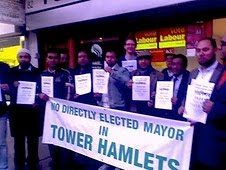





























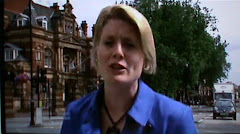






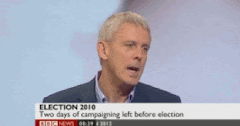






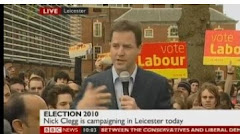
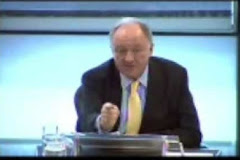











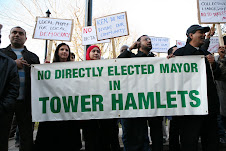




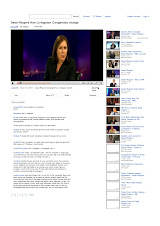
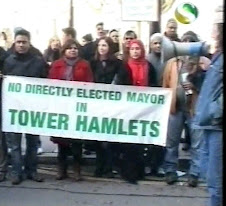

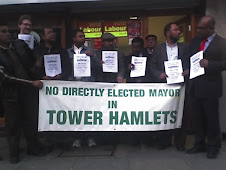

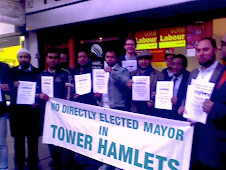
No comments:
Post a Comment